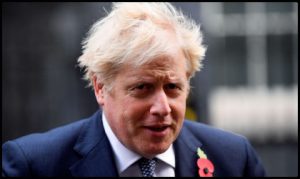In the United Kingdom and the government of Prime Minister Boris Johnson (pictured) has reportedly started its wide-ranging review into existing gambling laws by releasing its ‘terms of reference’ via 45 questions build around a trio of distinct objectives.
According to a Tuesday report from iGamingBusiness.com, the examination is to look into whether regulations formulated under the Gambling Act 2005 can be improved so as to create a safer player environment. The source detailed that the inquiry is to also determine whether a healthier balance between consumer freedoms and harm prevention can be struck alongside ensuring that punters are better protected regardless of whether they are gambling online or via one of many retail channels.
Regulator range:
The appraisal is reportedly being conducted by the Department for Digital, Culture, Media and Sport (DCMS) amid mounting concerns regarding gambling’s role in wider society and could well result in the Gambling Commission regulator being given a host of new or revised powers. The exercise is purportedly hoping to ascertain whether the authority currently has ‘sufficient investigation, enforcement and sanctioning powers’ before taking suggestions on how such capabilities could be ‘used differently or more effectively.’
Illicit interest:
The DCMS is reportedly also keen to determine whether there  are presently any barriers to ‘high quality research to inform regulation or policy making’ and, if so, how these may be overcome. The body is moreover purportedly eager to look into the unlicensed black market and will hope to ascertain the size of this illegitimate sector alongside its potential risks while simultaneously determining how easy it is for consumers to access illicit providers.
are presently any barriers to ‘high quality research to inform regulation or policy making’ and, if so, how these may be overcome. The body is moreover purportedly eager to look into the unlicensed black market and will hope to ascertain the size of this illegitimate sector alongside its potential risks while simultaneously determining how easy it is for consumers to access illicit providers.
Foundational funding:
iGamingBusiness.com reported that the review is to additionally look into ‘the most effective systems for recouping the regulatory and societal costs of gambling from operators’, whether this be through direct taxes, licence fees or levies, and ask a series of questions concerning harm redress. The ‘terms of reference’ purportedly also mention whether there may be ‘a need to change redress arrangements’ and if a more effective model exists elsewhere that could be quickly implemented.
iGaming intensity:
Regarding online gambling in the United Kingdom and the DCMS reportedly intends to find the answers to ten questions encompassing issues as broad as the effectiveness of existing protections, how revenues are currently distributed between lower and higher-spending consumers and whether controls covering stake and prize limits, testing and the speed of games need to be tightened.
Cash confines:
The examination will furthermore hope to ascertain whether iGaming accounts should face deposit, spend or loss limits with follow-up questions over whether these should be applied universally or on the basis of affordability. There is to moreover be a section on ‘white-label’ operators so as to discover whether this club of about 700 firms pose ‘a particular risk’ to customers.
Reportedly read a statement from the DCMS…
“Concerns have been raised that the companies who provide the brands may be seeking to use ‘white-label’ arrangements as they would be unable to meet the regulatory standards required to obtain a licence themselves and that this therefore poses risks to consumers.”
Promotional probe:
iGamingBusiness.com reported that the review, which is likely to take several months to complete, will additionally investigate new and emerging technologies alongside delivery and payment methods such as blockchain and crypto currencies with special interest on their potential risks. It is to purportedly also look into current marketing practices and seek to determine ‘the harms or benefits of licensed operators being able to make promotional offers such as free spins, bonuses and hospitality.’
Sport support:
The DCMS’s investigation will reportedly likewise examine ‘the positive and negative impacts’ of allowing iGaming operators to advertise their wares via sports sponsorship while ascertaining the effectiveness of current mandatory safer gambling messages within advertisements.
Adolescent attention:
There are to also be ten questions concerning age limits and underage gambling including whether current measures have proven effective and if there is an existing ‘best practice’ on such regulations. The National Lottery recently announced that it is to up the age limit for its products to 18 while the inquiry is to purportedly seek to determine whether further industry-wide protections for those under the age of 25 should be implemented.
Casino concern:
Finally, in the realm of land-based gaming and the DCMS is reportedly hoping to determine whether the sector should be asked to change via a reduction in machine numbers so as to support the government’s aim of reducing gambling-related harms. The body will purportedly furthermore ask for evidence on if British casinos ‘support economic regeneration, tourism and growth while reducing risks of harm’ and if local authorities ‘have enough powers’ with regards to premises licencing.



